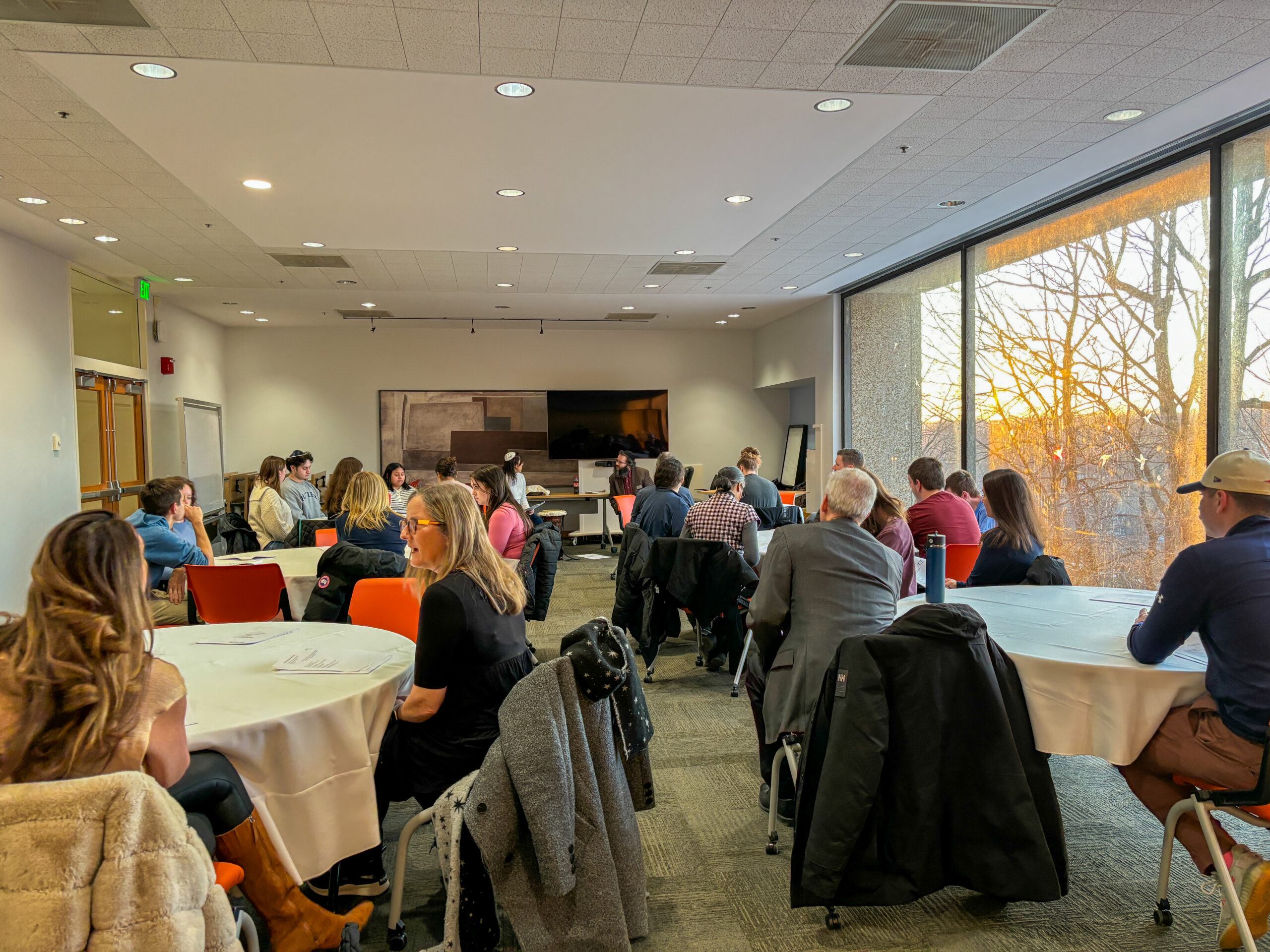Teaching Shabbat began just before sunset at South Campus. Photo by Samantha Noga.
JULIA VERES | STAFF REPORTER | jveres@butler.edu
In efforts to educate the Butler community about the Jewish holiday of Shabbat, the Compass Center hosted Teaching Shabbat on Friday, Feb. 21. The event included a follow-along service of Shabbat that allowed Jewish and non-Jewish students and faculty to practice and learn about the traditions of the holiday.
Shabbat is the Jewish day of rest, beginning on Friday before sunset and concluding on Saturday evening. It is a weekly holiday that many Jewish people believe is the most important holiday in Jewish practices. The follow-along Shabbat service included the traditional lighting of candles and the traditional prayers and songs. Attendees received packets containing all of the prayers and songs in Hebrew as well as an English translation.
The other main part of the Shabbat celebration was a dinner served for those who wanted it. It was a typical Shabbat meal of chicken, rice, challah bread, matzo ball soup and a dessert.
The Teaching Shabbat was led by Michael Aronson, a lecturer of journalism and creative media and the Jewish Life Advisor at the Compass Center, and Rebecca Itow, assistant vice provost at Indiana University Bloomington.
Throughout the service, Aronson, Itow and multiple Jewish students paused to explain what prayers and songs meant and how they all tied into the overall experience of Jewish people during Shabbat. Attendees were welcomed to participate, with Itow teaching the chorus of songs so that everyone could sing if they chose to do so.
First-year sociology major Marissa Halle was one of the Jewish students who helped teach some of the prayers. Halle explained that she wanted to be involved and help spread awareness about Shabbat.
“I think it’s really nice for non-Jewish people to come and see what Shabbat is like,” Halle said. “It’s just a really good feeling knowing that [Jewish people] have a community at Butler to support us.”
Community is one of the reasons that first-year psychology-criminology major Lily Steele attended.
Steele also noted that she hadn’t been to a Shabbat in a while due to how busy life can get.
“I missed being in the community and being around other Jewish kids my age,” Steele said. “Shabbat is one of the main things [Jewish people] do and it’s very peaceful. Jewish people don’t all celebrate Shabbat the same, but it has the same meaning to us.”
Aronson believes Shabbat is an important reminder for anyone to rest after a long week of working. He thinks that this tradition is important not just to Jewish people, but to everyone.
“I want our attendees to feel what Shabbat feels like, whatever their background may be,” Aronson said. “Shabbat is about taking space to rest. Shabbat is about finding this time to be with ourselves and nourish the part of ourselves that we don’t get to during the work week. You don’t need to be Jewish to need this.”



